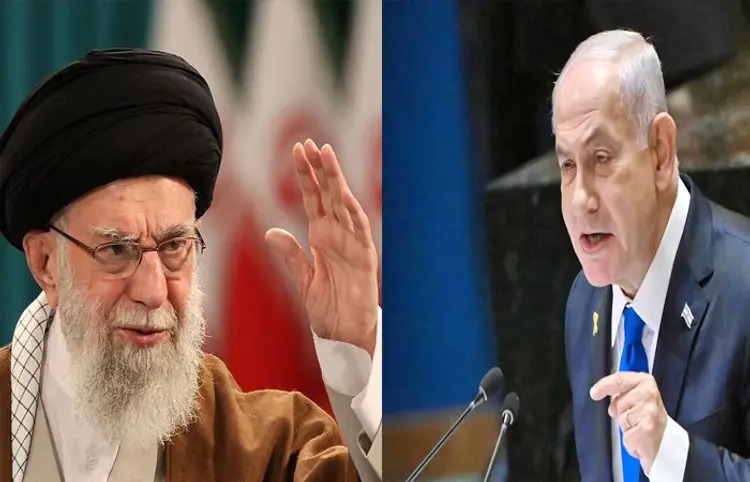
Israel–Iran relations: Tension has reached its peak in the Middle East. Iran fired about 200 missiles at Israel on Tuesday, including those with hypersonic warheads. Now Israel has also sworn that Iran will have to pay the price of this attack. However, relations between these two countries were not bad even before. This may sound unbelievable but Israel and Iran have joined hands with the help of America to fight an enemy country. In the 1960s, Iraq was an enemy of both Israel and Iran. While Israel was engaged in conflict with the Arab countries, Iraq was a direct threat to Iran under the Shah in terms of its security and regional ambitions. The basis was then laid for the most secret partnership of that time.
This partnership included Israel's intelligence agency Mossad and Iran's secret police 'SAVAK'. Both played important roles in strengthening Kurdish rebels against Iraqi rule. These Kurdish groups, seen as a weakness of Iraq's Arab leadership, were essential in weakening the Iraqi government from within. Relations between Israel and Iran reached new heights after the formation of a secret alliance called Trident, which also included Türkiye. In early 1958, these three groups exchanged a lot of intelligence with the help of Trident. As relations matured, Israel and Iran became closer.
Shah's ambitions and Israel's influence
Iran's Shah Mohammad Reza Pahlavi was motivated not only by shared geopolitical interests but also by Israel's influence in the US. The Shah saw Israel as a means to improve relations with the US. This became especially necessary after the Kennedy Administration expressed concerns about his rule. Israeli–Iranian relations became part of Iran's strategy to align itself with the West. As a result, a permanent Israeli delegation functioning as an embassy was established in Tehran by the mid-1960s. However, there were some complications in this relationship. The Shah was aware of widespread anti-Israel sentiment in the Arab world. He publicly denied Iran's ties to Israel.
Both benefit from working together against Iraq
The 1979 Islamic Revolution in Iran drastically changed the country's political landscape, turning it into an anti-Israel Islamic republic. However, even after the Ayatollahs came to power, the new regime continued its covert cooperation with Israel. As the Iran–Iraq War (1980–1988) progressed, both countries saw the benefit of working together against Saddam Hussein's Iraq. Israel sending arms shipments to Iran was a deliberate decision to weaken Iraq's power, especially after Prime Minister Menachem Begin approved the sale of military equipment in the 1980s. The secret arms deal was made despite the US policy of withholding military aid to Iran until the release of American hostages in Tehran. The regime of Ayatollah Ali Khamenei allowed large numbers of Iranian Jews to immigrate to Israel or the United States in exchange for Israeli military aid.
operation flower
The Israeli-Iranian partnership went beyond traditional arms deals. One of the most ambitious plans was Operation Flower, a secret multimillion-dollar plan that began in 1977 during the Shah's reign. Under the deal, Iran made a large advance payment by sending $260 million of oil to Israel in 1978, a 1986 New York Times report claimed. Work on the missile program continued until the Islamic Revolution in 1979, after which the Khamenei regime abruptly halted cooperation. When Iran went to war with Iraq in October 1980, Israel also secretly provided Iran with 250 spare tires for American-made F-4 fighter planes.
beginning of hostilities
By the 1990s, the era of cooperation between Israel and Iran was almost over. The geopolitical factors that once united them, such as Arab socialism, Soviet influence, and the threat of Iraq, have disappeared and there is no reason left for cooperation. After this Iran adopted anti-Israel ideology. Iran supported groups such as Hezbollah and Hamas in their conflict with Israel. In the early 2000s, the election of Iranian President Mahmoud Ahmadinejad, genocide denial, and aggressive statements against Israel increased tensions. Iran then became Israel's main rival in the region. Now these two countries of the Middle East are on the verge of full-scale war.
 look news india
look news india